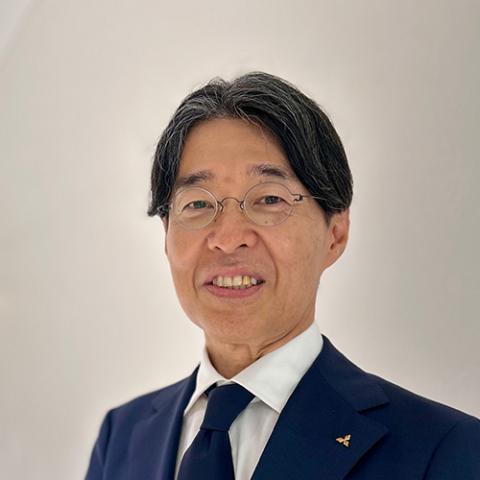How HR can support management strategy to drive corporate success
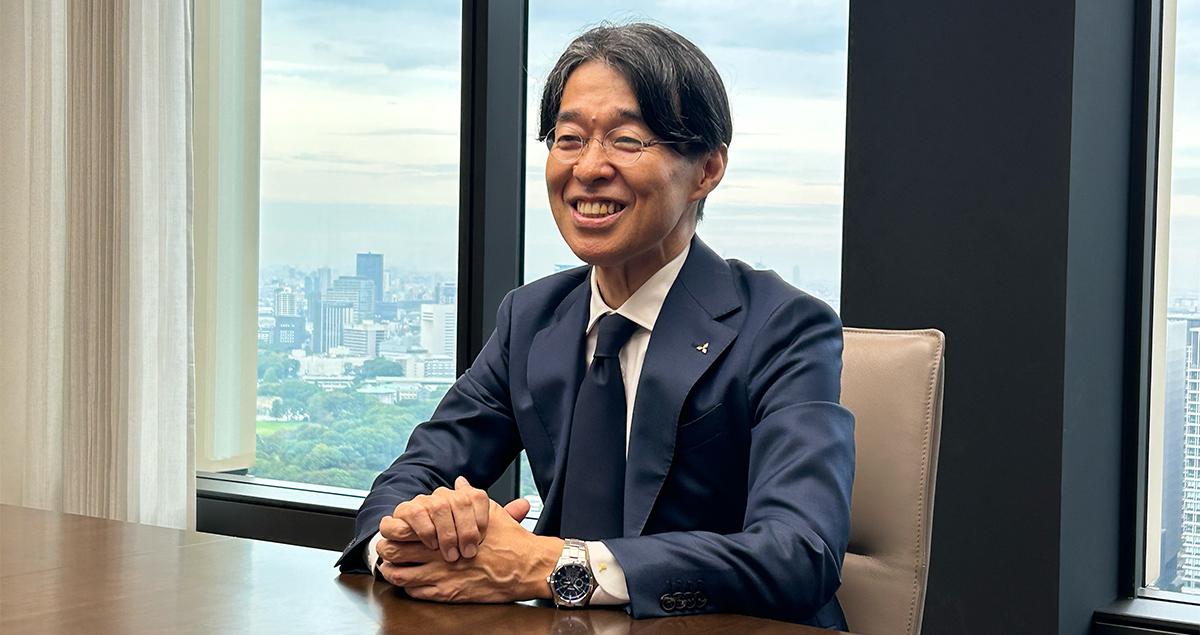
This article was previously published in our newsletter, if you're not already a subscriber, sign up here.
A modern Human Resources department must be a true partner to the business, not merely a back office handling talent acquisition, pay, and promotions—roles it has too often been limited to in the past. Since people are critical to corporate success, HR must be deeply involved in setting and executing strategy. It should stand alongside the CEO and business leaders, offering guidance and insight as they make decisions every day across the organization.
This is the vision we have set for ourselves at Mitsubishi Heavy Industries (MHI) Group to fully integrate our HR strategy with our management strategy by 2030. The details of our ‘4+1’ HR Innovation Strategy were included, in this year’s 2024 Medium-Term Business Plan.
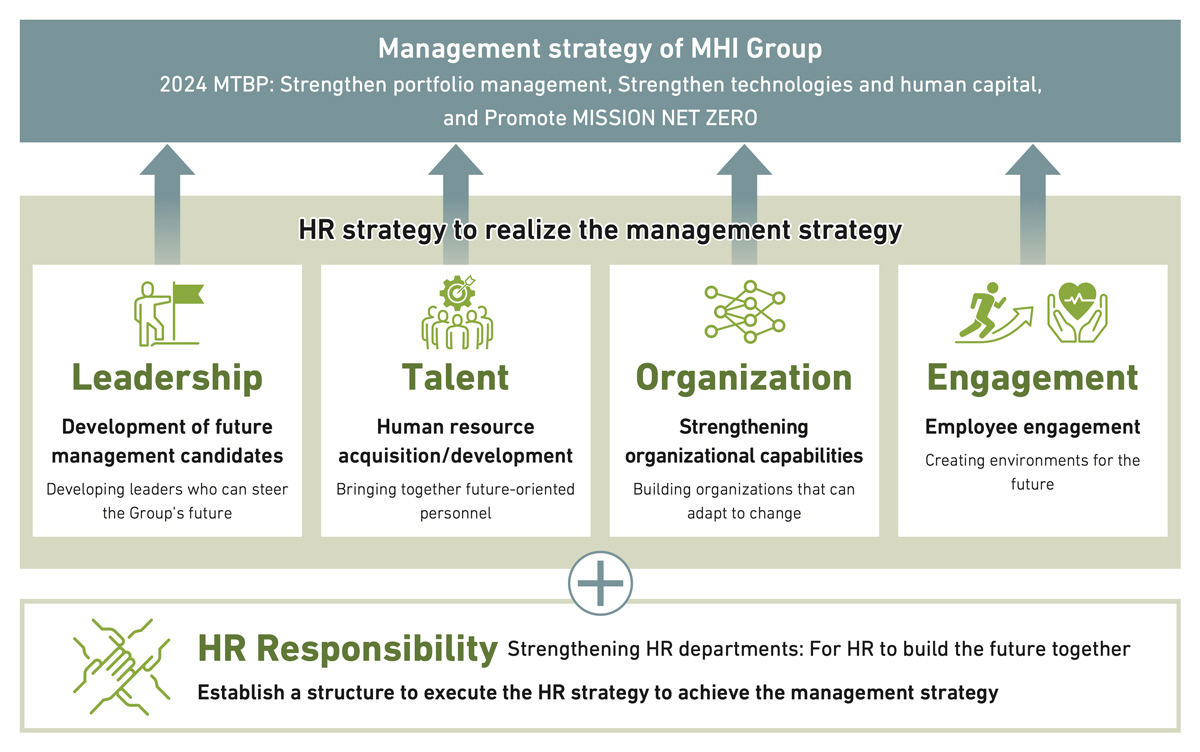
From finding the right people…
The first of our four focus areas is leadership. While it is challenging to find strong leaders for individual business units, it becomes even more difficult to identify executives who can effectively lead divisions or the entire company. The key to addressing this challenge lies in a systematic approach. At MHI, we identify high-potential leaders early in their careers and closely track their progress.
Promising candidates are selected for a special executive development program, which they can also volunteer for, demonstrating their ambition and commitment. These individuals receive targeted training and coaching, and, alongside their peers, are encouraged to envision how they would lead and manage the future of MHI Group.
Our approach is built on best practices we have observed at other multinational companies, from our Japanese peers, and by drawing lessons from MHI Group’s own rich, 140-year history. As a result, the board of directors always has a robust pool of emerging talent to rely on, for growth of new business areas, maintaining stable business activity and for crisis management. Each situation requires different skills and experience from the emerging talent.
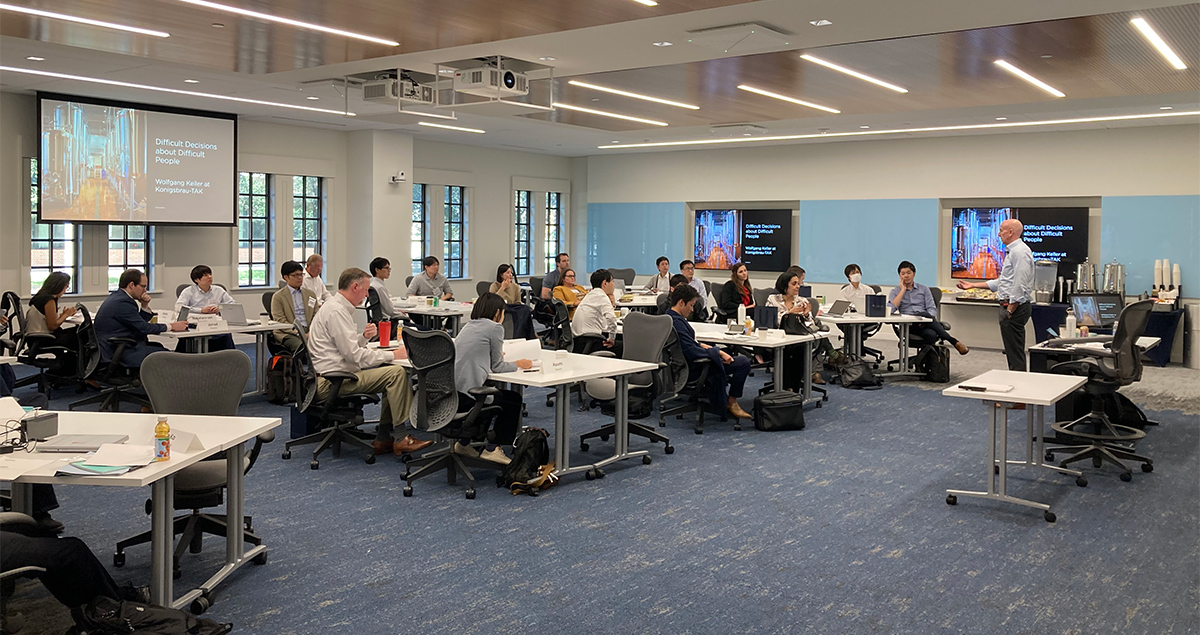
Acquiring and developing talent is our second focus area and our top priority for the next three years. This is a significant challenge, especially given the demographic challenges in many of our key markets and the preference young people have for start-ups, finance, and consultancies over traditional industrial companies. In Japan, for example, MHI requires 200 graduates for our nuclear business this year.
Overseas, we are also working hard to secure talent with the necessary skills to support our growing business in the energy transition, which is experiencing strong demand. Additionally, securing competent employees for our factories, while competing against rapidly growing industries like semiconductors, is essential for our business.
More broadly, we need to communicate that MHI offers a comprehensive career path, both for graduates and lateral hires, and for both Japanese and international talent. Given MHI Group’s scale and diversity of businesses, there are numerous opportunities for a varied career. In my 38 years at the company, I have held over 20 different positions. Our hope is that our employees will find enough interesting challenges within MHI Group to stay with us long-term.
In fact, I believe the concept of hands-on manufacturing, or ‘monozukuri,’ resonates with a certain segment of global talent, especially when it involves designing and building high-tech hardware, as we do at MHI. Furthermore, our focus on ‘green’ technologies, such as hydrogen and CO₂ capture, along with our commitment to decarbonize our operations through MISSION NET ZERO, is highly attractive to many, particularly younger individuals.
However, the key challenge is finding this talent. To do so, we must go beyond traditional job fairs and university recruitment. We need to leverage social media, enhance our corporate branding, and rely more on word-of-mouth to reach the right candidates.
…to leading them into the future.
Even the best talent can only thrive in an organization that is flexible and responsive. While MHI Group still has room for improvement in this area, I believe Japanese companies have an advantage. Unlike specialists, who focus on narrow fields, we tend to develop generalists—people who are like decathletes rather than 100-meter sprinters—making it easier to deploy staff across diverse opportunities. A good example of this flexibility is how MHI Group created a new GX Solutions segment to foster synergies between future growth areas like CO₂ capture, hydrogen, and ammonia.
That said, the traditional notion that employees in Japanese companies should change roles every three years is outdated. As employees gain experience, they often specialize and build the expertise necessary for their roles. This shift is becoming more of a two-way process. While managers still often reassign staff based on business needs, we have implemented job boards where employees can apply for internal vacancies themselves.
In many of our global locations, our local HR teams hire specialists as lateral hires, placing them in roles that align with their expertise. These initiatives are gradually improving engagement, which we track through our biannual employee survey. We also conduct staff reviews, hold more town hall meetings, and ensure senior executives address staff at our overseas locations during their visits.
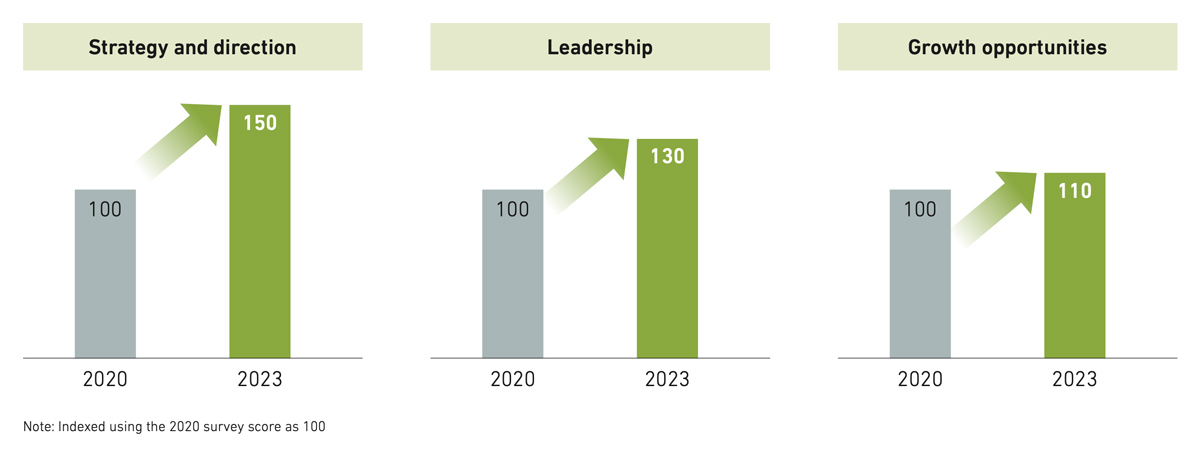
Our recent strong operational results have boosted confidence and morale. On a practical level, the five-fold rise in our stock price over the past three years signifies stock market expectations for MHI Group.
In Japan, we are gradually addressing the issue of seniority-based pay, starting from the top, and working to modernize our compensation structure.
We are collaborating with business divisions to create teams that harness the power of diversity. Additionally, we have implemented a globally unified HR system that centralizes HR data and offers a variety of solutions, helping to drive the company’s overall management strategy and support the business strategies of each division.
As an Executive Vice President, I am involved in all senior management decisions and over the coming years we want HR staff to become genuine business partners to their operational colleagues at every level. This will be essential for MHI Group to continue to succeed, not only as a global company but also as an organization with an agile, actively engaged, and professional workforce that makes a business truly sustainable.
![]()
Discover more about MHI Group's HR strategy




